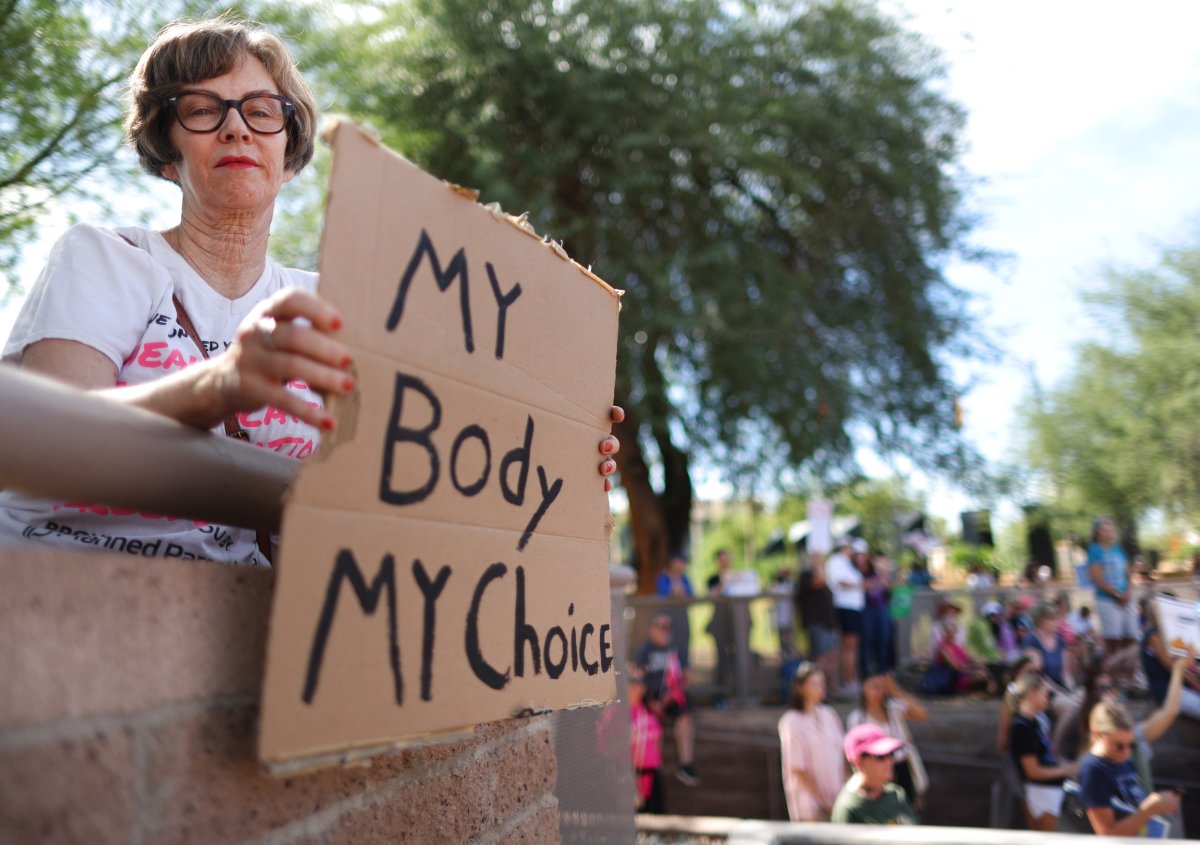Two justices on the Arizona Supreme Court called out the "bombshell" in their colleagues' historic abortion ruling.
In a 4-2 decision, the state's high court upheld an 1864 law on Tuesday, which was codified in 1901, allowing a near-total abortion ban to go into effect in Arizona. Under the 123-year-old law, all procedures are barred except in cases when "it is necessary to save" the life of the mother. The ruling will further restrict abortion in Arizona, where a 15-week ban was already in place.
In her dissenting opinion, joined by Chief Justice Robert Brutinel, Vice Chief Justice Ann Scott Timmer said that her colleagues' decision "mistakenly returns us to the territorial-era abortion statute last operative in 1973."
She warned that it was "implausible to conclude" if state lawmakers "planted within the construction note a bombshell of reverting to a near–total ban on abortion... by using the term 'currently unlawful.'"
Former federal prosecutor and elected state attorney Michael McAuliffe told Newsweek that Timmer's dissent expressed her frustrations that the Arizona Supreme Court didn't attempt to "harmonize" the state's existing 15-week ban and the 1864 law, instead choosing to "justify its conclusion that both statutes apply despite their inconsistencies."
"The unspoken part of the dissent's assertion arguably is that the majority went out of its way to uphold the near total abortion ban," McAuliffe said.
"Timmer argued forcefully in dissent that the majority opinion used a brief note contained in the legislative history of a recent abortion statute to conclude that a near total abortion ban law first enacted in 1864 (before Arizona became a state) also applies despite the two statutes' contradictions," he said.
Former federal prosecutor Neama Rahmani agreed, telling Newsweek that Timmer's "scathing" dissent argues that the state legislature did not intend to implement a near-total abortion ban.
"It's an issue of statutory construction, and Timmer's argument is that the more recent law is consistent with the legislature's intent," Rahmani said. "Because of the inconsistent laws, if the legislature does not repeal the 1864 law, abortion rights advocates will have to put a measure on the November ballot."
There is a 14-day stay on the law while the trial court decides how to proceed. Under the law, anyone found guilty of violating the ban will face two to five years in state prison.

All seven justices on the bench were appointed by Republican governors.
Justice William Montgomery recused himself from the case. Although he did not provide an explanation, attorneys for Planned Parenthood Arizona asked Montgomery to recuse himself in October, arguing that his public comments about the organization should disqualify him from hearing the case. Facebook posts showed him protesting outside the organization's Arizona headquarters and claiming that the group is responsible for "generational genocide."
In its opinion on Tuesday, the Arizona Supreme Court found that protections for abortion rights in the state rested entirely on Roe v. Wade, which was overturned by the Supreme Court of the United States (SCOTUS) in 2022. The case in Arizona is the latest major fight in a wider, national battle over abortion, which has taken over several states since SCOTUS' Dobbs decision.
"Here, we consider a statute that was never repealed—in fact, it was recodified even after it was enjoined—followed by the enactment of a series of statutes regulating the same subject matter in the wake of Roe, the Supreme Court decision striking down the original statute," the majority opinion read.
However, Timmer disagreed, writing in her dissent, "I would leave it to the people and the legislature to determine Arizona's course in the wake of Roe's demise."
"Physicians should be permitted to lawfully perform abortions before the fifteen-week gestation point or when necessary to preserve the pregnant woman's health," she wrote. "Respectfully, I dissent."
Update 4/10/2024 7:17 a.m. ET: This story has been updated with comment from Neama Rahmani.
Uncommon Knowledge
Newsweek is committed to challenging conventional wisdom and finding connections in the search for common ground.
Newsweek is committed to challenging conventional wisdom and finding connections in the search for common ground.
About the writer
Katherine Fung is a Newsweek reporter based in New York City. Her focus is reporting on U.S. and world politics. ... Read more
To read how Newsweek uses AI as a newsroom tool, Click here.






